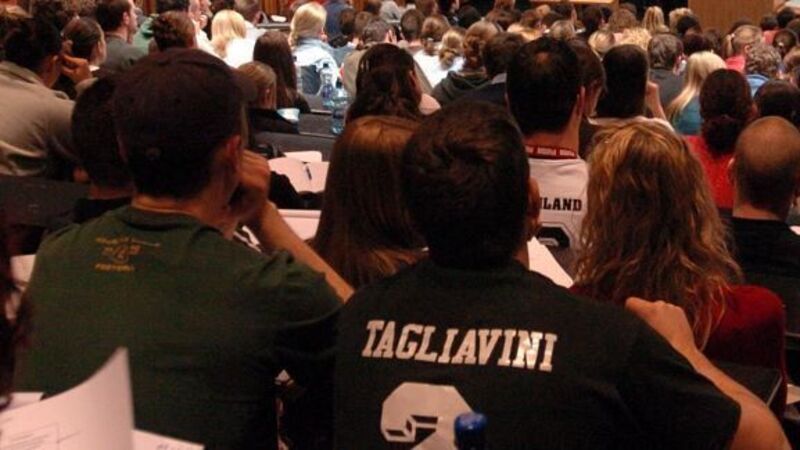Study: Lower standards fuelling better grades

Martin O’Grady, a psychology lecturer at Institute of Technology Tralee, said that the “rampant grade inflation” he and a colleague found in research in 2007 had slowed. However, he said, as colleges and examiners lowered standards, students are working less, fuelling employer concerns about standards of graduates.
The Irish Universities Association did not comment yesterday on the latest research paper from the Network for Irish Educational Standards, which covers graduation awards from 2005 to 2009. The web-based forum was set up by Mr O’Grady and two colleagues at IT Tralee to research threats to quality of education, with emphasis on the risks of grade inflation.













